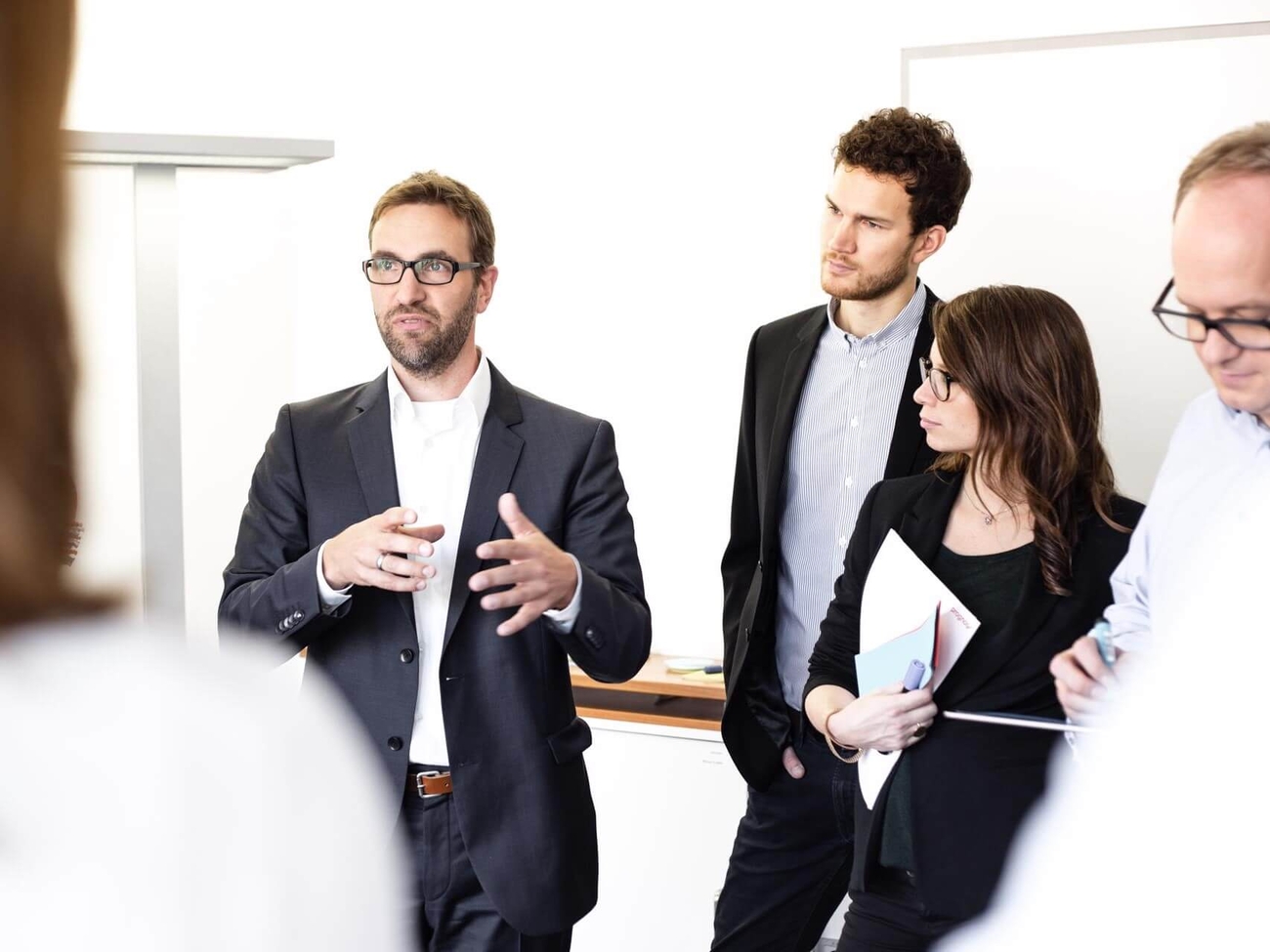1959
Founded
200+
Experts
30+
scientific disciplines
The Prognos FAQ
If you want to know what we do, how we earn our money and who works at Prognos, you will find all answers here.
Who are Prognos‘ clients?
Our clients are foundations and non-governmental organisations, associations and companies, state and federal ministries and other public sector organisations. We do not work for political parties.
What is the professional focus?
We are experts in all topics that have a long-term impact and influence our future, such as economics, demographics, digitalisation, globalisation, energy, infrastructure and the EU. We do not conduct research in internal and external security.
How is Prognos financed?
Prognos does not receive any grants or core funding. We are not backed by any donor, party or association. We are therefore not committed to any school of thought or ideology, but only to the high-quality standards of our work. We finance ourselves through our assignments. We only accept projects if we can ensure that our methodological standards are adhered to and that the results meet the requirements of the professional environment.
What distinguishes Prognos from other institutes or consultancies?
Political and financial independence, a high methodological standard, interdisciplinarity and practical relevance – these have been our most important values since our founding. We are an economic research institute, a strategic consultancy, sometimes also a think tank or a futurologist. To discuss the important questions of the future, we have economists working together with engineers, political scientists with physicists, sociologists with transport experts.
How does Prognos obtain its assignments?
We participate in tenders, are commissioned directly or develop our research ideas together with our clients.
When was Prognos founded?
Prognos is one of the oldest economic research institutes in Europe. It was founded in 1959 by seven professors at the University of Basel, Switzerland.
What is the meaning of the suffix “AG”?
Prognos AG was founded and has its headquarters in Switzerland. Here, the legal form “AG” is by far the most common form of company (like the GmbH in Germany). Prognos is not listed on the stock exchange. We pay taxes where the value creation takes place, i. e. for the most part in Germany (seven of ten locations are in Germany).
Where is Prognos represented today?
We have ten locations: the Prognos headquarters is in Basel, the German headquarters in Berlin and our EU office in Brussels. In addition, we have offices in other important hubs of German and Austrian politics and business: in Bremen, Düsseldorf, Freiburg, Hamburg, Munich, Stuttgart and Vienna.
Does Prognos only conduct contract research?
No, not only. As a self-financed organisation, we have the freedom to also conduct self-initiated research and thus publish independent work to provide impetus. One example of this are the highly regarded Prognos Zukunftsatlas or the Deutschland Report, which was first published in 1964.
What methods does Prognos use?
We work with both qualitative and quantitative methods. Since our foundation in 1959, our technical-economic models have played a central role, for example in the areas of economics, energy and emissions. For our analyses, we only use meaningful statistics from methodologically sound, credible sources published by national and international organisations and research institutes.
Who works at Prognos?
Our employees come from a wide range of scientific disciplines. Many of them have a doctorate in their field. They all share a high level of expertise in their field of research and a commitment to professional scientific ethics. Many are involved in their scientific community, for example in advisory boards, juries or professional associations. The majority of the employment contracts are permanent. Prognos also employs 15 to 20 academic volunteers who contribute to the projects.
Does Prognos cooperate with other institutions?
Our teams regularly collaborate on projects with teams from universities, institutes and various research institutions, for example from the Helmholtz-Gemeinschaft or the Fraunhofer-Gesellschaft. Our cooperation partners also include corporate and communications consultancies as well as data partners.
How is the Prognos management organised?
Christian Böllhoff has been the managing partner of Prognos AG since 2003. He leads the organisation together with other members of the management from the various specialist areas. Dr Jan Giller is Chairman of the Board of Directors.
What working language does Prognos use?
German supplemented by English and French.
